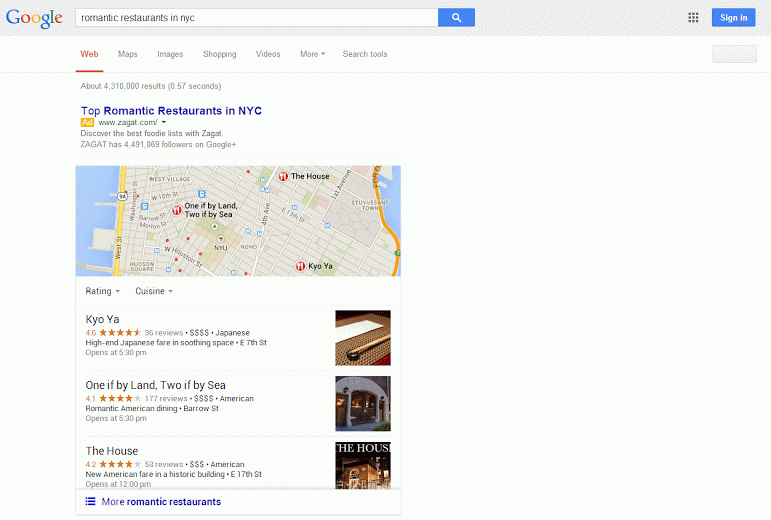Most of Google’s recent tweaks and experiments appear to be converging mobile SERPs and desktop interfaces, unifying the experience of searching on a smartphone or laptop. The latest test shows rich snippets and thumbnails in the style of mobile Knowledge Graph results – but on desktop PCs. It seems the mobile-unfriendly carousel might soon be phased out in favor of something easier to read on a phone.
We haven’t been able to see it when we’ve done test searches, although members of the Moz team were able to recreate the mobile SERPs on desktop PCs. This suggests that it’s still a limited function. In the past, Google has tested features to see if people actually interact with them more. It seems as if results that garner more engagement end up becoming the norm, so if people end up clicking on these results, rather than traditional carousels, we could be seeing more of them in the future.
Theoretically, this is all in the name of better user experience. Google has been an advocate of UX for a long time. For example, Matt Cutts emphatically stated that micromanaging keywords for SEO wins is a waste of time when webmasters could be improving their sit’ UX so visitors have an easier time interacting with online content. However, it now seems clear the search engine’s vision is deeply connected to what people browsing the web on smartphones see.
Reflecting on Google’s changes since it went public in 2010
August 2014 marks a very important milestone for the internet: It’s been ten years since Google became a publicly traded company. The influx of cash this brought with it started the familiar pattern of innovation and update we’ve all become accustomed to. The company’s head of search, Amit Singhal, made a Google+ post to commemorate the occasion, and he included what he considered to be the top ten achievements in Google search technology development over the past decade.
Three of the most recent all shed light on direction Google may be headed in the future. They also nicely tie in with the mobile-type results desktop users are now seeing:
-
Mobile search: Google is very conscious of the fact mobile queries are different from traditional searches, and that they’re becoming a larger chunk of overall searches every day.
-
Knowledge Graph: Instead of matching keywords to content, Google tries to understand the intent of a search and provide the most relevant results quickly and intuitively.
-
Personalized results: The more contextual clues Google has available, the better it can provide prompt answers to questions and requests.
Taken together, these should tell brands a lot about the future of content marketing. Google expects your future prospects and leads to be using mobile devices, click on rich snippets and see different SERPs depending on their preferred devices and search history. Optimizing for semantic search should be the primary goal of any brand, and producing quality content is step number one.





